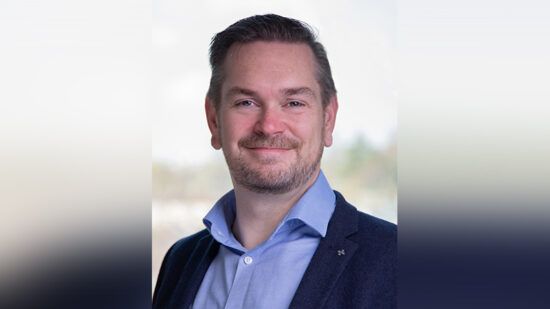In this series for PA Future, as we enter spring, we ask senior members of the responsible investment industry about what the next iteration of ESG looks like, to share their fresh additions to portfolios and what they would like to see emerge from regulators.
Louisiana Salge, head of sustainable at EQ Investors, discusses how some parts of the industry have more ‘growing up’ to do than others, incorporating SDR into EQ’s investment research and the problems that arise from short-term thinking when considering financial materiality.
The first quarter of 2024 has seen industry spokespeople talk about the next iteration of ESG or how ‘ESG is growing up’. What’s your take on this? What is key for the next evolution in this space?
Individuals and investors’ understanding of ESG is always evolving, but I wouldn’t say all parts of the financial services industry is “grown up” in this respect – it is however vital we get there. We need to hold more informed discussions about the differences between ESG and investing in sustainable outcomes, about the legitimate differences in intentions and motivations of investors – only this way can we prevent misled politicisation of ESG – such as what has partly occurred in the US.
What is new this quarter for the UK is that ESG “growing up” is no longer only industry-driven, but there is now also regulatory pressure by the FCA. A key focus for the industry this year is aligning the diversity of sustainable investment approaches with the new SDR framework and providing the necessary reporting. Some existing products across the spectrum of capital fit neatly, some do not. We anticipate that with the roll-out of the new fund labels and anti-greenwashing rule, conversations around sustainable preferences and products are bound to become more sophisticated.
Another key focus should be to differentiate stewardship approaches based on their ambition and impact. We need to shine a spotlight on stewardship, especially as we move towards the realistic understanding that no company or asset manager is perfect. While all institutional investors can talk to examples of engagement, in reality the depth and value-add of engagement can vary significantly. This also applies to voting activity, where on average the support for social & environmental resolutions is reducing – but there are clear leaders to be found.
What was the most recent new investment/addition to your portfolio?
Due to the sustainable objective of our EQ Positive Impact portfolios, our fixed income allocation is focused on where the issuer or the specific bond contributes solutions to social and environmental needs. In alignment with that, a recent addition to our EQ Positive Impact portfolios is the CT Global Social Bond fund. Building on the pioneering social bond assessment framework developed for CT’s UK-focused flagship fund, this newly-launched fund allows our portfolios to gain access to the diversified, full global opportunity set of bonds that provide positive social outcomes. Selected bond proceeds are addressing a variety of unmet needs, including accessible housing, financial inclusion, or healthcare access.
Which new themes are you exploring in portfolios?
At EQ we manage portfolios that apply unique sustainability objectives, catering for different client preferences. Given the new regulatory input from the FCA, we are working to integrate the finalised SDR framework into our existing sustainable fund research, including holding meetings with all asset managers to collaborate on interpreting the new rules, establishing disclosure expectations, all in anticipation of the first fund labels being launched from July.
It has been said many times that the industry is just at the beginning of ESG regulation. What else would you like to see?
In line with the essence of this recent consultation from 2023, I would like to see greater timely disclosure of full voting records, voting rationales and clear voting policies by all asset managers. It is currently still difficult to accurately compare the voting impact across different managers due to the lack of standardisation on this front. While publicly available resources, like the ShareAction Voting Matters 2023 report, can help provide a snapshot of voting intentions, it is important to look under the bonnet. Given that voting is one of the most direct ways an investor can have an impact, we would support greater transparency.
Spring is a time for new beginnings. What are you looking at with a fresh perspective in your personal or work life and why?
This spring I am thinking about the concept of “financial materiality” of sustainability, and the problems arising from short-term thinking. If you look at guidance on how to conduct a “financial materiality” assessment of sustainability factors to a business, choosing a time horizon is vital. A risk that will be financially material in the next three years is very different from one that will be in 30. We need to think about both.
In an investment context, this distinction is rarely clearly considered. Misaligned time horizons with end beneficiaries (eg the retail client saving for their pension) is in my view limiting the stewardship behaviour of asset managers. Let me give you an example of how this currently plays out:
EQ is critical of asset managers that do not use their voting rights to promote better social and environmental practices. Ambitious stewardship supporting a more equitable and sustainable world, is in our view aligned with our long term fiduciary duty to clients. Most clients invest over a long-term time horizon and have financial goals aligned to this horizon too.
However, when analysing the voting record of some lagging asset managers, voting rationales often cite that supporting a proactive social/environmental resolution is “not aligned with shareholder interests based on financial materiality”.
They generally mean “financial materiality” in the short term. Some sustainability impacts, like public health impact or biodiversity destruction, have limited historical track record of affecting business finances and without an explicit legislation around the corner, won’t be immediately material in the short term. However it is undeniable that such themes are material over the long term, as these destruct systematic value from society and our economies and the “license to operate” adapts to protect these over time (through consumer demands, policies, competitive advantages).
The cumulative result of this short-term view of financial materiality is that asset managers are not using all levers at their disposal to create the world that at large is in line with their end-beneficiaries objectives.








